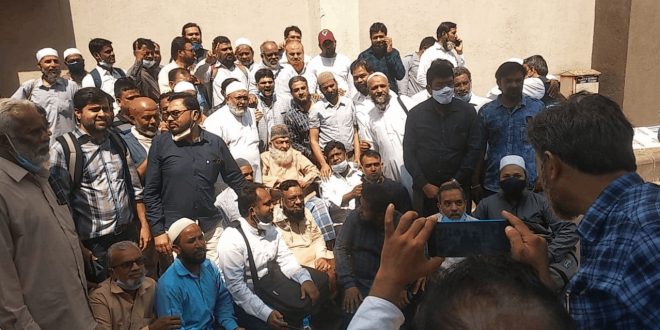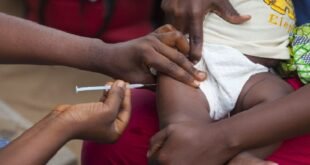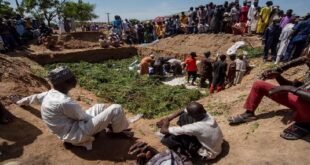09-03-2021
Bureau Report
NEW DELHI/ KARACHI: On the night of December 26, 2001, Mohammad Abdul Hai boarded a train from Jodhpur in northwestern India’s Rajasthan state to Surat city in neighboring Gujarat to attend a three-day seminar on Muslim education.
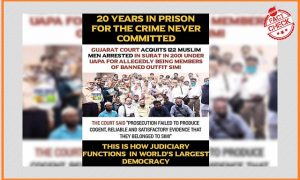 The seminar was organized by the All India Minority Education Board, of which Hai then an associate professor at Jodhpur’s Jai Narain Vyas University was a member.
The seminar was organized by the All India Minority Education Board, of which Hai then an associate professor at Jodhpur’s Jai Narain Vyas University was a member.
The three-day event was expected to be attended by nearly 400 Muslim scholars, activists and community leaders from across India.
Hai was excited about the seminar but little did he know that the event was going to change his life forever and soon he would not only be called a “terrorist” and “anti-national” but will have to spend the next 14 months in jail.
The next day at approximately 11pm, police arrived at Rajeshree Hall, a closed film theatre in Surat, where Hai and 120 others attending the seminar were staying.
Police arrested all of them under various sections of the Unlawful Activities (Prevention) Act (UAPA), a stringent anti-terror law, and charged them with being members of the banned Students Islamic Movement of India (SIMI) and for organizing the meeting to “promote and expand” SIMI’s activities.
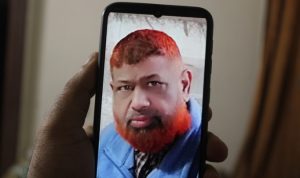 A total of 127 people, all Muslims, were arrested.
A total of 127 people, all Muslims, were arrested.
More than 19 years after they were booked, a court in Surat on Sunday acquitted all of the accused in the case. Five of them died during the long trial.
Indian authorities accused SIMI of carrying out several bombings and of having links with armed groups based in Pakistan. Hundreds of its alleged members have been arrested, but the group says it merely propagates an “Islamic way of life” for India’s Muslims.
The Indian government banned SIMI in 2001 in the aftermath of the 9/11 attacks in the United States.
An ordeal of nearly 20 years
The Surat court, in its March 6 order, said the prosecution had failed to produce “cogent, reliable and satisfactory” evidence to establish the accused belonged to SIMI or had gathered to promote the group’s activities. The court ruled they cannot be held guilty under UAPA.
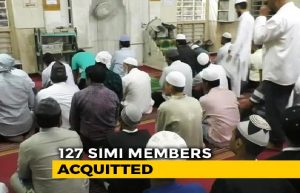 “This case caused so many problems for us and our families. Some of the victims lost their government jobs, some couldn’t get work for years,” Hai told media over the telephone.
“This case caused so many problems for us and our families. Some of the victims lost their government jobs, some couldn’t get work for years,” Hai told media over the telephone.
After spending 14 months in jail, Hai was granted bail by India’s Supreme Court in 2002 but that was not the end of his ordeal.
Every week for several years, Hai, now 66, would travel more than 700km (430 miles) from his home in Jodhpur to present himself before the police in Surat. Twice a month, he made the same journey to appear before a judicial magistrate in the Gujarat city.
Meanwhile, three months after getting bail, he was reinstated at his university but was denied any promotion due to the case.
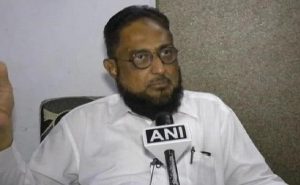 “I was working as an associate professor on December 27, 2001, and I retired at the same position in June 2015. I couldn’t get a single promotion all these years and lost so many monetary benefits a government employee gets, including gratuity at the time of retirement,” he said.
“I was working as an associate professor on December 27, 2001, and I retired at the same position in June 2015. I couldn’t get a single promotion all these years and lost so many monetary benefits a government employee gets, including gratuity at the time of retirement,” he said.
Asif Iqbal, 53, was working as a primary healthcare worker with the Surat Municipal Corporation when he was arrested in the same case.
Not only did he spend four months in jail, but he was also suspended from his job and finally terminated in 2018.
“I kept telling the officials the case is still pending in the court and I have not been declared guilty, so let me keep my job but they didn’t listen and terminated me,” he told media over the telephone from Surat.
Iqbal was supposed to retire in 2027.
 “This case ruined my life. For a decade and a half, I wasn’t paid the full salary,” he said, adding that he “feels guilty” that his 75-year-old father still drives an auto-rickshaw to help his family meet the ends.
“This case ruined my life. For a decade and a half, I wasn’t paid the full salary,” he said, adding that he “feels guilty” that his 75-year-old father still drives an auto-rickshaw to help his family meet the ends.
Now that the court has acquitted him of all charges, Iqbal demands that he be reinstated and compensated for the loss.
Asif Sheikh, now 51, was arrested while pursuing a course in mass communication and journalism at Gujarat University.
Despite being a top student at university, Sheikh said he was not able to pursue a career in journalism, a profession he was passionate about.
“I was labeled a SIMI member. Because of this label, no organization would give me a job,” he told media. “Our houses were raided as if we were dreaded terrorists.”
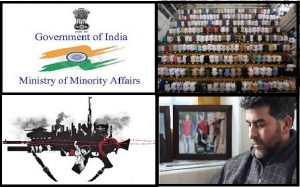 Sheikh said he took a contractual job with a government institute after his bail but was forced to resign after they came to know about his case.
Sheikh said he took a contractual job with a government institute after his bail but was forced to resign after they came to know about his case.
“I wanted to be a journalist but now I am selling spices.”
‘Significant bias against Muslims’
In the past few decades, hundreds of Indian Muslims have been booked in bogus terror-related cases, most of them resulting in an acquittal of the accused, but not before victims had either spent years in jail or facing court trials, sometimes, decades.
A 2018 study by non-profit Common Cause and Lokniti, a research initiative by the New Delhi-based Centre for the Study of Developing Societies (CSDS), found that a sense of being discriminated against by police in India is the strongest among Muslims.
The study said more than 47 percent of Indian Muslims feared being falsely accused of terrorist activities.
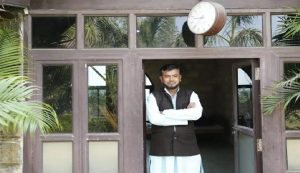 Another report by Lokniti in 2019, titled Status of Policing in India: Police Adequacy and Working Conditions, found that police in India display “significant bias against Muslims”, with half of the police personnel saying Muslims are “naturally prone towards committing crimes”.
Another report by Lokniti in 2019, titled Status of Policing in India: Police Adequacy and Working Conditions, found that police in India display “significant bias against Muslims”, with half of the police personnel saying Muslims are “naturally prone towards committing crimes”.
In 2016, Innocence Network, a rights group that campaigns for those wrongfully prosecuted, released its report, calling on the government to pay compensation to them. The group also demanded that Indian officials behind wrongful arrests and prosecutions should be held accountable.
“The fact is there is no compensation for people held for so long. The fact that there is no prosecution of policemen who plant, forge or manufacture evidence to keep these people under trials for so long in itself indicates the judicial system is not working,” Ravi Nair, executive director of South Asia Human Rights Documentation Centre, told media.
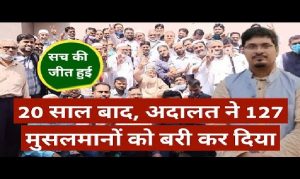 Nair said the immunity enjoyed by the police and other government officials who engage in human rights violations “must be, first of all, withdrawn or repealed”.
Nair said the immunity enjoyed by the police and other government officials who engage in human rights violations “must be, first of all, withdrawn or repealed”.
“Only then can you have a proper judicial system functioning in this country,” but Asif Sheikh told media he doesn’t expect any compensation from the government. Instead, his appeal to Indian Muslims is “to work for the welfare of the community”.
Sheikh said the reason people from his community are booked in “fake and bogus” cases is to create fear among the Muslims.
“If a group of people who want to talk about education of Muslims or their constitutional rights are booked in a bogus case which drags for 20 years, what does that mean? It creates fear,” he said.
“Why isn’t anybody talking for the Muslim community today? Because there is fear, this fear has been created by such cases.”
 Pressmediaofindia
Pressmediaofindia
